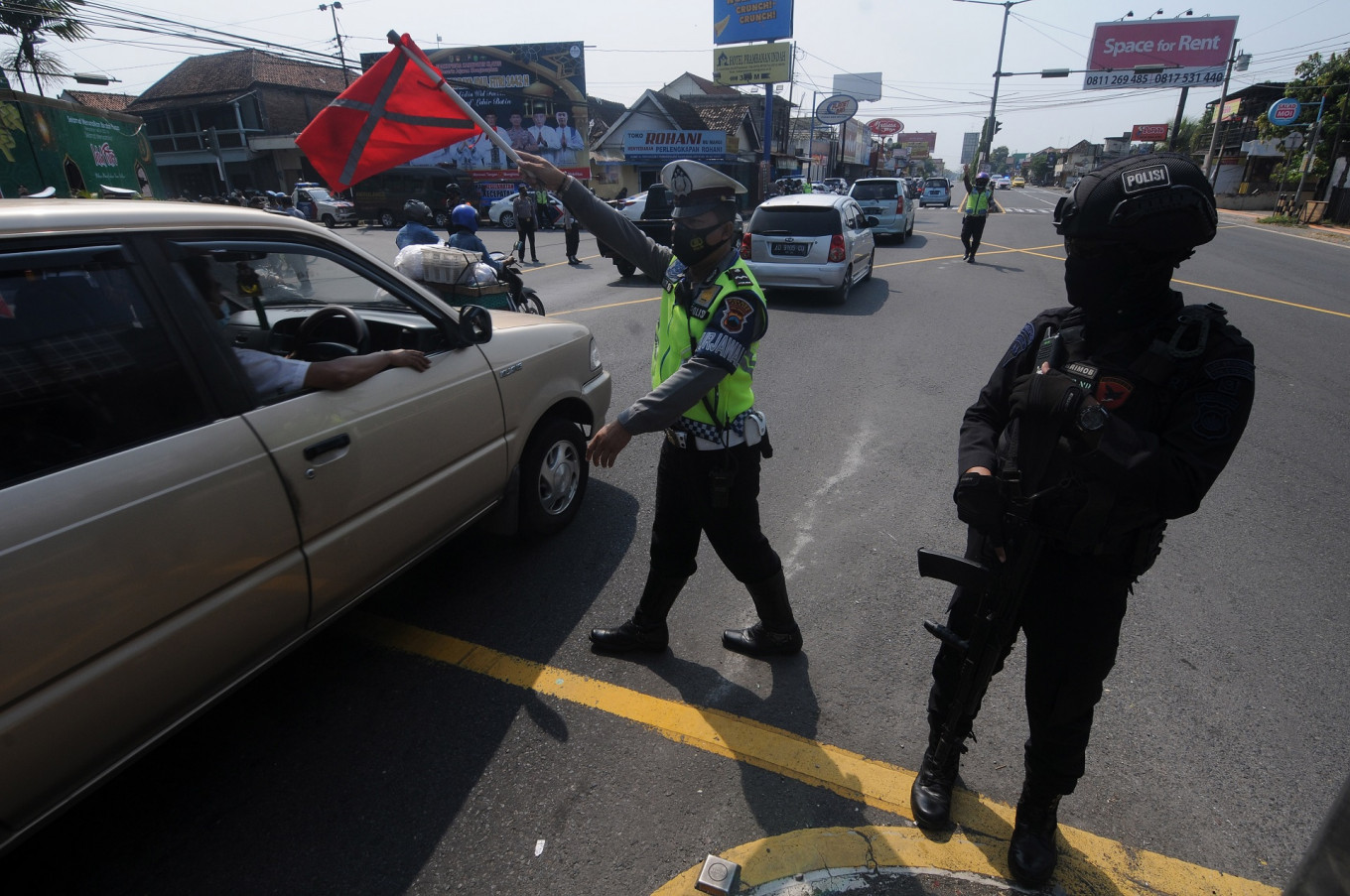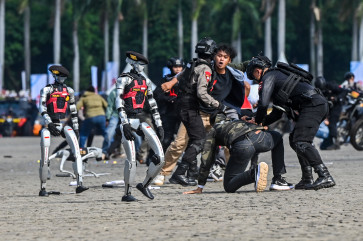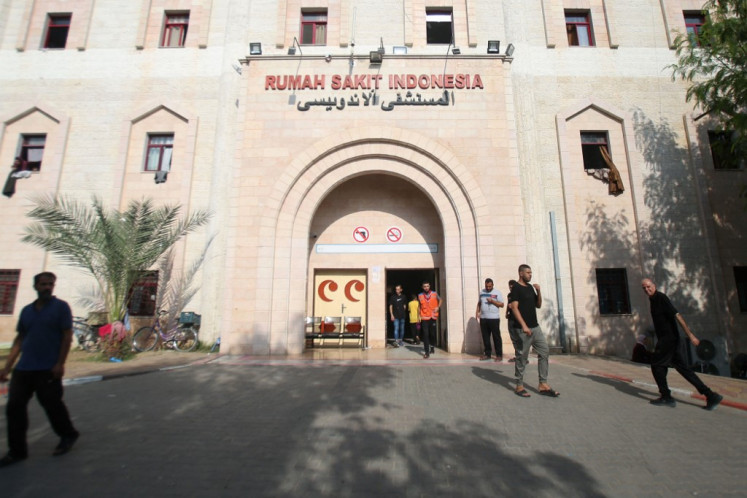Popular Reads
Top Results
Can't find what you're looking for?
View all search resultsPopular Reads
Top Results
Can't find what you're looking for?
View all search resultsGovt braces for case spike as holiday travelers return
Change text size
Gift Premium Articles
to Anyone
T
he government believes more than 1 million people have gone on mudik (exodus) trips over the Idul Fitri holiday despite the ongoing ban and is screening returning travelers as it anticipates a spike in COVID-19 cases.
Transportation Minister Budi Karya Sumadi said on Saturday that more than 1.5 million people had managed to return to their hometowns despite the mudik ban imposed between May 6 and 17, about a week before and after Idul Fitri, which fell on May 13 this year.
The figure, while smaller than the ministry's previous predictions that were based on its surveys, remains a looming concern given the dramatic increase in cases seen after previous public holidays in the country and the detection of highly transmissible virus variants.
"What we're doing is not yet perfect, but we're working with other ministries and institutions to avoid another wave of COVID-19 cases as seen after the New Year holiday," Budi said.
Budi noted a drop in the number of passengers traveling on airplanes, ships or trains but acknowledged that motorists still found ways around the mudik ban. The ban supposedly only allows travel for work or other urgent reasons and requires travelers to present permits from local authorities and negative COVID-19 test results.
The government predicts that most people will travel back between May 16 and May 20 in what it calls the arus balik (counter-exodus). Three days before Idul Fitri, Budi said the ministry, based on its own surveys, predicted that as many as 3.6 million people would travel back on Sunday. After the mudik ban, the government will still tighten travel requirements, as travelers must present negative test results taken no more than 24 hours before their departure from May 18 to 24.
Read also: More tests, local monitoring: Authorities step up virus prevention as ‘mudik’ travelers return
Fearing that these travelers might bring the virus with them as they return, especially to Indonesia's capital of Jakarta, the government has ordered mandatory COVID-19 testing of people traveling to Java through Bakauheni Port in Lampung as well as through Gilimanuk Port in Bali since Saturday.
Meanwhile, random COVID-19 testing will be carried out at 21 points across Java for travelers passing through toll and arterial roads on the country's most populous island.
Coordinating Economic Minister Airlangga Hartarto revealed last week that 4,123 of 6,742 mudik travelers randomly tested for COVID-19 had tested positive, with 1,686 of them then undergoing self-isolation and 75 sent to hospitals. He did not disclose, however, which test was used, as experts noted that the positivity rate was well above the country's common rate of around 22 percent lately.
Authorities appear to be most concerned about travelers moving between Java and Sumatra, the latter of which, according to them, had seen an increase in COVID-19 cases and hospitals COVID-19 bed occupancy rates. The national COVID-19 task force recently revealed that new daily cases in Sumatra this month was 27.22 percent higher than in January, while at the same time cases in Java had decreased by 11.06 percent.
The same trend was also seen in the number of deaths in Sumatra with an increase of 17.18 percent over the same period, while daily deaths in Java decreased by 16.07 percent. Some provinces had recorded bed occupancy rates of between 45 and 60 percent, Airlangga noted on Saturday.
Read also: Concerns grow over Sumatra's surging COVID-19 cases
"We don't want a ping pong [of cases between Sumatra and Java]," task force chief Doni Monardo said.
Doni said as many as 440,014 travelers had gone through Merak Port in Banten to Bakauheni Port, and they were expected to return to Java soon. To anticipate the influx of returning travelers, Doni said, as many as 200,000 antigen test kits had been shipped to Bakauheni Port from Java to screen them for COVID-19 as local authorities also prepared isolation facilities.
The government has asked local administrations to prepare their healthcare facilities in anticipation of a spike in COVID-19 cases, which must be monitored until mid-June. Jakarta Governor Anies Baswedan said that, on top of screening travelers at entry points to Greater Jakarta, local COVID-19 task forces would also keep records of these travelers and monitor their health as well as get them tested for COVID-19.
Experts have highlighted the need for Indonesia's healthcare system to prepare for an increase in COVID-19 that is deemed inevitable, given the high mobility of people. But the concern went beyond the mudik – in that people avoiding the trips could still spend their holidays at crowded, closed spaces, where there is insufficient ventilation, amid growing fears of aerosol and airborne transmission.
In Jakarta, for instance, people flock to malls that are still open over the holidays. The Ancol Dreamland Park in North Jakarta also attracted some 40,000 visitors on the second day of Idul Fitri, kompas.com reported. After drawing ire from social media, tourist attractions in the city have announced that they would be closed until Monday.










